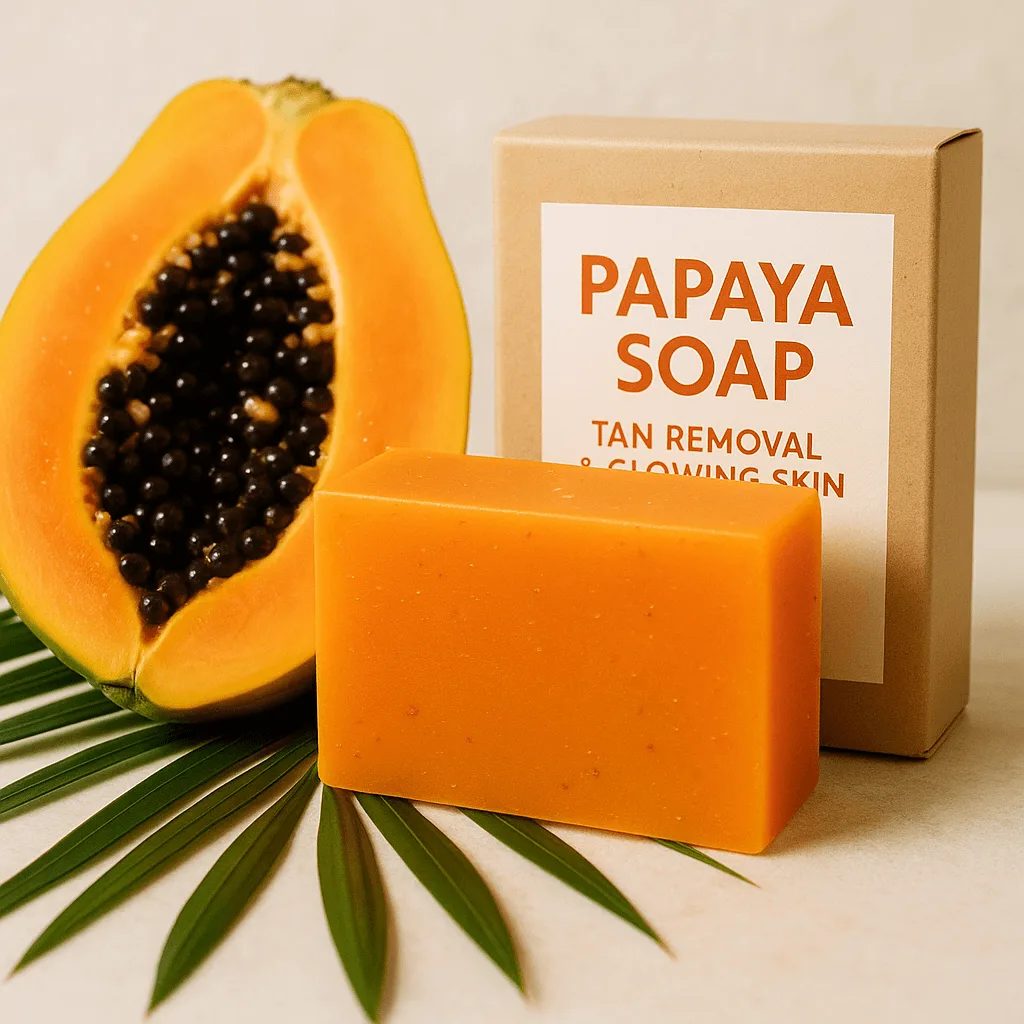Papaya Soap for Acne Scars FAQs: What You Need to Know
Acne scars can have a lasting impact on skin appearance and confidence. With the rise of natural skincare solutions, many people are now turning to papaya soap for acne as a treatment. But does it really work? Is it safe for all skin types? In this FAQ-style article, we explore everything you need to know about this tropical remedy and its effect on acne scars.
What is Papaya Soap?
This cleansing bar is a natural skincare product made from papaya extract, particularly the enzyme papain, which is known for its exfoliating and skin-brightening properties. It is commonly used to cleanse, exfoliate, and even out skin tone.

How Does Papaya Soap for Acne Scars Work?
The primary mechanism by which papaya soap for acne may reduce acne scars is exfoliation. Papain helps remove dead skin cells, encouraging cell turnover and revealing fresher, more even-toned skin underneath. According to a study published in the Journal of Ethnopharmacology, papaya extract exhibits keratolytic properties, aiding the removal of the outermost skin layer, which can help diminish the appearance of scars.
Is It Effective on All Types of Acne Scars?
This type of cleanser may be more effective on post-inflammatory hyperpigmentation (PIH) — the dark marks left after a pimple heals — than on deeper, pitted scars like ice pick or boxcar scars. Exfoliation and natural skin lightening can fade pigmentation over time but may have limited impact on structural scarring.
How Long Does It Take to See Results?
For most users, visible improvement in skin texture and pigmentation can be observed in 4–6 weeks with consistent use of papaya soap for acne scars. However, results may vary depending on skin type, severity of scarring, and frequency of use.
Can It Cause Skin Irritation?
While generally considered gentle, papaya soap for acne can cause irritation in people with sensitive or allergy-prone skin. Dermatologist Dr. Rachel Nazarian notes that enzymatic exfoliants like papain can be safer than physical scrubs, but users should still patch test before regular use.
Is It Safe for Daily Use?
Yes, this fruit-based soap can be used daily, preferably once or twice a day. Overuse may lead to dryness, so it’s recommended to follow up with a non-comedogenic moisturizer.
Are There Clinical Studies Supporting Papaya Soap for Acne?
While few large-scale clinical trials focus specifically on papaya soap for acne scars, several studies highlight the skin-lightening and exfoliating effects of papain. According to the International Journal of Cosmetic Science, enzyme-based exfoliants like papain have been found to improve skin brightness and texture.
How Does It Compare to Other Acne Scar Treatments?
Compared to chemical peels, laser treatments, and retinoids, this bar is:
- More affordable
- Less invasive
- Easily available over-the-counter
However, it may also be less potent and take longer to show visible results.
Can It Be Combined with Other Skincare Products?
Yes, papaya soap for acne can be integrated into most skincare routines. It pairs well with:
- Hyaluronic acid (for hydration)
- Niacinamide (for brightening)
- Sunscreen (to protect sensitive new skin)
Avoid using it alongside strong acids or retinoids initially, as this may cause irritation.
Where Can I Buy Authentic Papaya Soap?
For best results, choose a soap that contains a high percentage of natural papaya extract and avoid products with harsh chemicals or artificial fragrances.
We recommend our Papaya Soap, formulated for gentle, effective acne scar reduction and daily cleansing.

Summary
Using papaya soap for acne scars offers a promising, natural alternative for managing discoloration and pigmentation. While it may not be a miracle cure for deep scarring, its exfoliating and brightening properties make it a worthy addition to any skincare routine.
For more information, visit the American Academy of Dermatology for professional skincare guidelines.
Also explore our full line of tropical cleansers, including our Papaya Soap, designed for radiant, healthy skin.